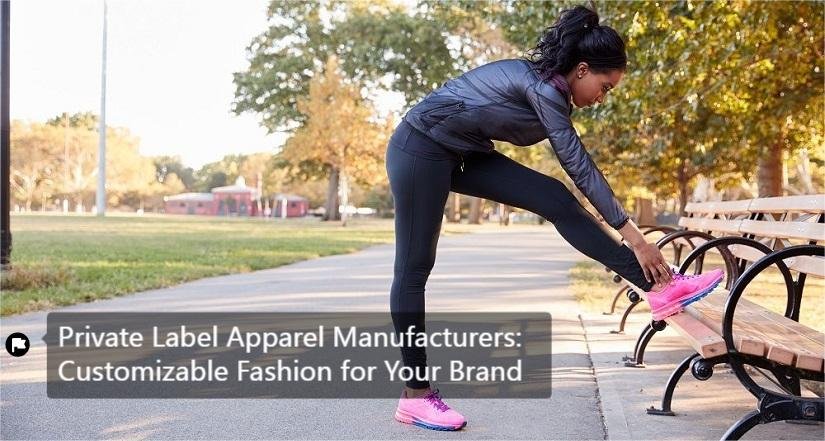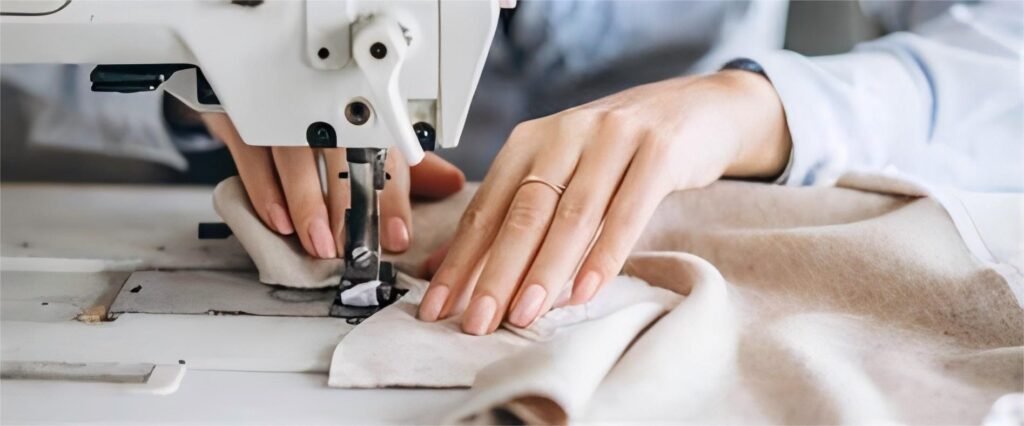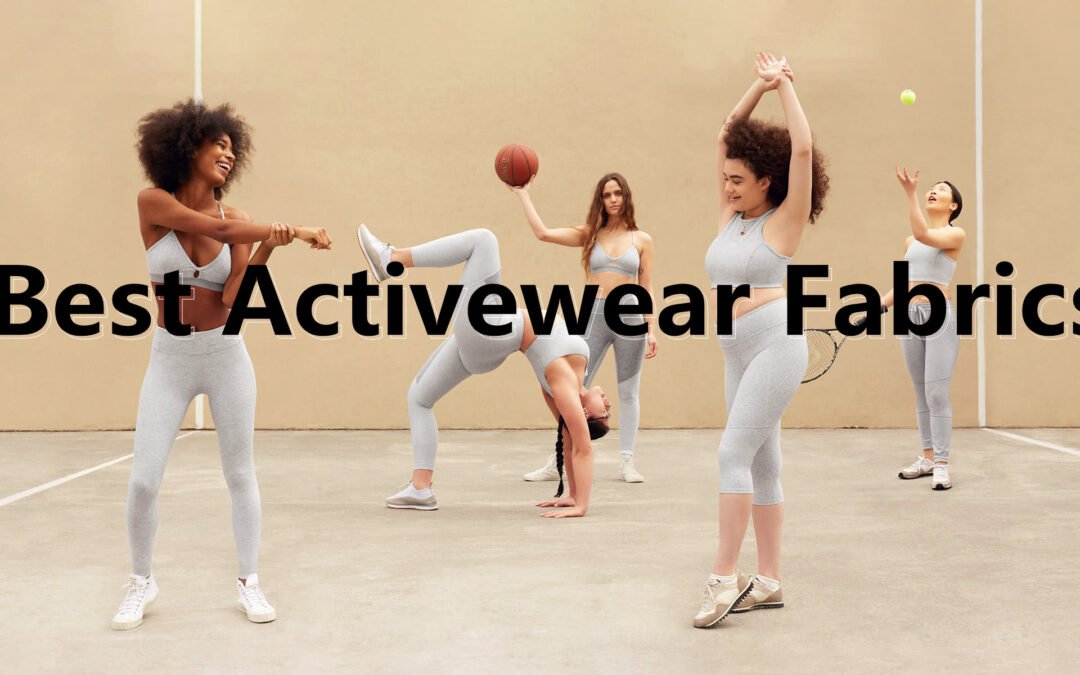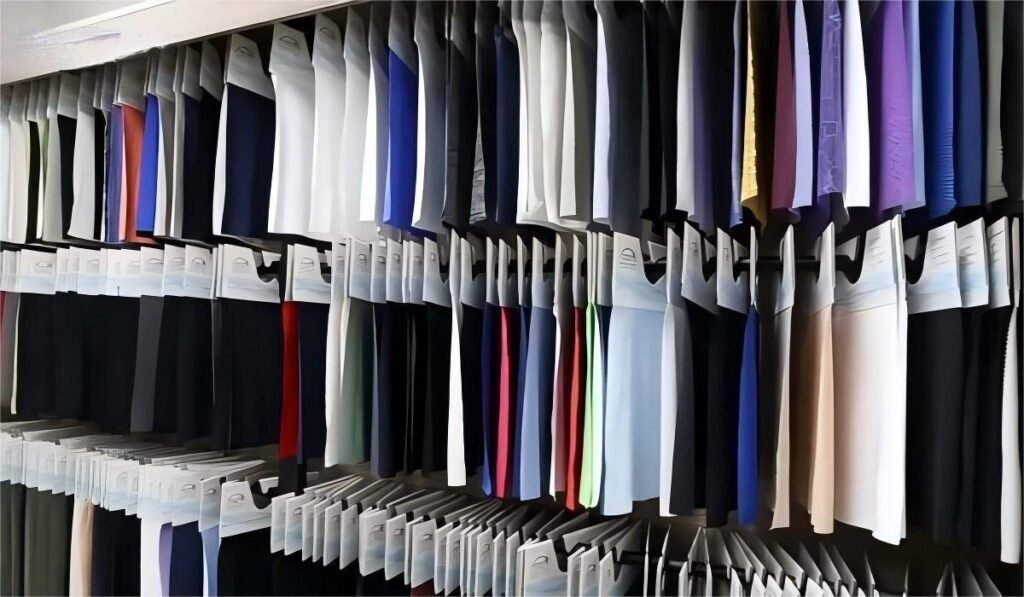No products in the cart.
Custom Yoga Pants
Private Label Apparel Manufacturers: Customizable Fashion for Your Brand
Private Label Apparel Manufacturers: Customizable Fashion for Your Brand
Introduction to Private Label Apparel Manufacturers
Private label apparel manufacturers are companies that specialize in producing clothing and accessories for other brands. They offer a wide range of services, from design and production to packaging and distribution. These manufacturers allow brands to create their own unique fashion lines without the need for extensive in-house resources or expertise.

Benefits of Private Label Apparel Manufacturing
There are several benefits to working with private label apparel manufacturers. Firstly, they provide brands with the opportunity to create custom fashion pieces that align with their unique brand identity. This allows for greater control over the design process and ensures that the final product reflects the brand’s vision.
Secondly, private label apparel manufacturers offer flexibility in terms of production quantities. Whether a brand is looking to produce a small batch or a large-scale collection, these manufacturers can accommodate their needs. This flexibility is particularly beneficial for emerging brands or those testing new product lines.
Furthermore, working with private label apparel manufacturers can save brands time and money. These manufacturers have established supply chains and production processes, which means they can produce clothing at a lower cost compared to in-house production. Additionally, brands can avoid the upfront costs associated with setting up their own manufacturing facilities.
How to Choose the Right Private Label Apparel Manufacturer
Choosing the right private label apparel manufacturer is crucial for the success of a brand’s fashion line. There are several factors to consider when making this decision. Firstly, brands should assess the manufacturer’s expertise and experience in producing the type of clothing they require. It is important to review their portfolio and ensure they have a track record of delivering high-quality products.
Secondly, brands should consider the manufacturer’s production capabilities. This includes assessing their production capacity, lead times, and ability to handle different materials and techniques. It is important to choose a manufacturer that can meet the brand’s production requirements and deliver products on time.
Additionally, brands should evaluate the manufacturer’s communication and customer service. Clear and open communication is essential for a successful partnership. Brands should ensure that the manufacturer is responsive, transparent, and willing to collaborate throughout the production process.

The Process of Customizing Fashion for Your Brand
The process of customizing fashion with a private label apparel manufacturer typically involves several steps. Firstly, brands need to provide the manufacturer with their design concepts, including sketches, mood boards, or technical drawings. This helps the manufacturer understand the brand’s vision and create initial samples.
Once the initial samples are produced, brands can provide feedback and request modifications. This iterative process continues until the final product meets the brand’s expectations. It is important for brands to be clear and specific in their feedback to ensure the manufacturer understands their requirements.
After the design is finalized, the manufacturer will proceed with production. This involves sourcing materials, cutting and sewing the garments, and conducting quality control checks. The manufacturer will also handle packaging and labeling according to the brand’s specifications.
Trends in Private Label Apparel Manufacturing
Private label apparel manufacturing is a dynamic industry that is constantly evolving to meet the changing demands of consumers. One major trend in recent years is the rise of sustainable and ethical manufacturing practices. Brands are increasingly seeking manufacturers that prioritize eco-friendly materials, fair labor practices, and transparent supply chains.
Another trend is the growing demand for customization and personalization. Consumers are looking for unique and individualized fashion pieces that reflect their personal style. Private label apparel manufacturers are responding to this trend by offering customization options, such as personalized embroidery or custom prints.
Additionally, there is a growing interest in local manufacturing. Brands are recognizing the value of supporting local economies and reducing their carbon footprint by working with manufacturers in their own country. This trend is particularly prominent in regions like North America and Europe.

Cost Considerations for Private Label Apparel Manufacturing
While private label apparel manufacturing can offer cost savings compared to in-house production, there are still several cost considerations to keep in mind. Firstly, brands should consider the cost of samples and prototypes. It is important to budget for multiple iterations and modifications during the design process.
Secondly, brands should factor in the cost of materials. The choice of materials can significantly impact the overall cost of production. Brands should carefully consider the quality, durability, and sustainability of materials, as well as their price.
Furthermore, brands should consider the cost of production and labor. This includes the cost of cutting, sewing, and assembling the garments, as well as any additional services such as printing or embroidery. It is important to obtain detailed quotes from different manufacturers and compare their pricing structures.
Quality Control in Private Label Apparel Manufacturing
Maintaining high-quality standards is crucial in private label apparel manufacturing. Brands should ensure that the manufacturer has robust quality control processes in place. This includes conducting inspections at various stages of production to identify any defects or inconsistencies.
Brands can also request samples or prototypes before production begins to assess the quality of the manufacturer’s work. It is important to communicate any specific quality requirements or standards to the manufacturer to ensure they are met.
Additionally, brands should consider implementing their own quality control measures. This can involve conducting random inspections of finished products or working with third-party quality control agencies to ensure the products meet the brand’s standards.

Marketing and Branding Strategies for Private Label Apparel
Marketing and branding are essential components of successfully launching a private label apparel line. Brands should develop a comprehensive marketing strategy that includes both online and offline channels. This can involve creating a visually appealing website, engaging in social media marketing, and collaborating with influencers or bloggers.
Brands should also focus on building a strong brand identity and story. This includes developing a unique brand name, logo, and tagline that resonate with the target audience. It is important to communicate the brand’s values, mission, and vision to establish a connection with consumers.
Collaborating with Private Label Apparel Manufacturers
Collaboration between brands and private label apparel manufacturers is key to creating successful fashion lines. Brands should establish a clear and open line of communication with the manufacturer from the beginning. This involves discussing design concepts, production timelines, and any specific requirements or expectations.
Regular communication throughout the production process is essential to ensure that both parties are aligned and any issues or challenges are addressed promptly. Brands should also be open to feedback and suggestions from the manufacturer, as they have valuable expertise and insights.
Case Studies: Successful Brands Using Private Label Apparel Manufacturing
Several successful brands have leveraged private label apparel manufacturing to create their fashion lines. One example is Fashion Nova, a popular online retailer known for its trendy and affordable clothing. Fashion Nova works with private label manufacturers to produce its extensive range of clothing, allowing the brand to quickly respond to changing fashion trends and offer a wide variety of styles.
Another example is Gymshark, a fitness apparel brand that has experienced rapid growth in recent years. Gymshark collaborates with private label manufacturers to produce its high-quality activewear, which is known for its innovative designs and performance features. This partnership has allowed Gymshark to scale its production and expand its product offerings.
Future Outlook for Private Label Apparel Manufacturers
The future looks promising for private label apparel manufacturers. As consumers continue to seek unique and personalized fashion options, the demand for customizable clothing is expected to grow. Private label manufacturers that can offer customization services and cater to individual preferences are likely to thrive in this evolving market.
Additionally, the focus on sustainability and ethical manufacturing practices is expected to continue. Private label apparel manufacturers that prioritize eco-friendly materials, fair labor practices, and transparent supply chains are likely to attract more brands and consumers who value sustainability.
Conclusion: Unlocking the Potential of Customizable Fashion for Your Brand
Private label apparel manufacturers offer brands the opportunity to create custom fashion lines that align with their unique brand identity. The benefits of working with these manufacturers include greater control over the design process, flexibility in production quantities, and cost savings. Brands should carefully choose a manufacturer based on their expertise, production capabilities, and communication skills.
The process of customizing fashion involves several steps, from providing design concepts to final production. Trends in private label apparel manufacturing include sustainability, customization, and local manufacturing. Brands should consider cost factors such as samples, materials, and production labor. Quality control is crucial, and brands should implement their own measures in addition to the manufacturer’s processes.
Marketing and branding strategies are essential for successfully launching a private label apparel line. Collaboration with the manufacturer is key, and brands should establish clear communication and be open to feedback. Successful brands like Fashion Nova and Gymshark have leveraged private label manufacturing to create their fashion lines.
The future outlook for private label apparel manufacturers is promising, with the demand for customizable clothing and sustainable practices expected to grow. By unlocking the potential of customizable fashion, brands can create unique and personalized clothing that resonates with their target audience.
